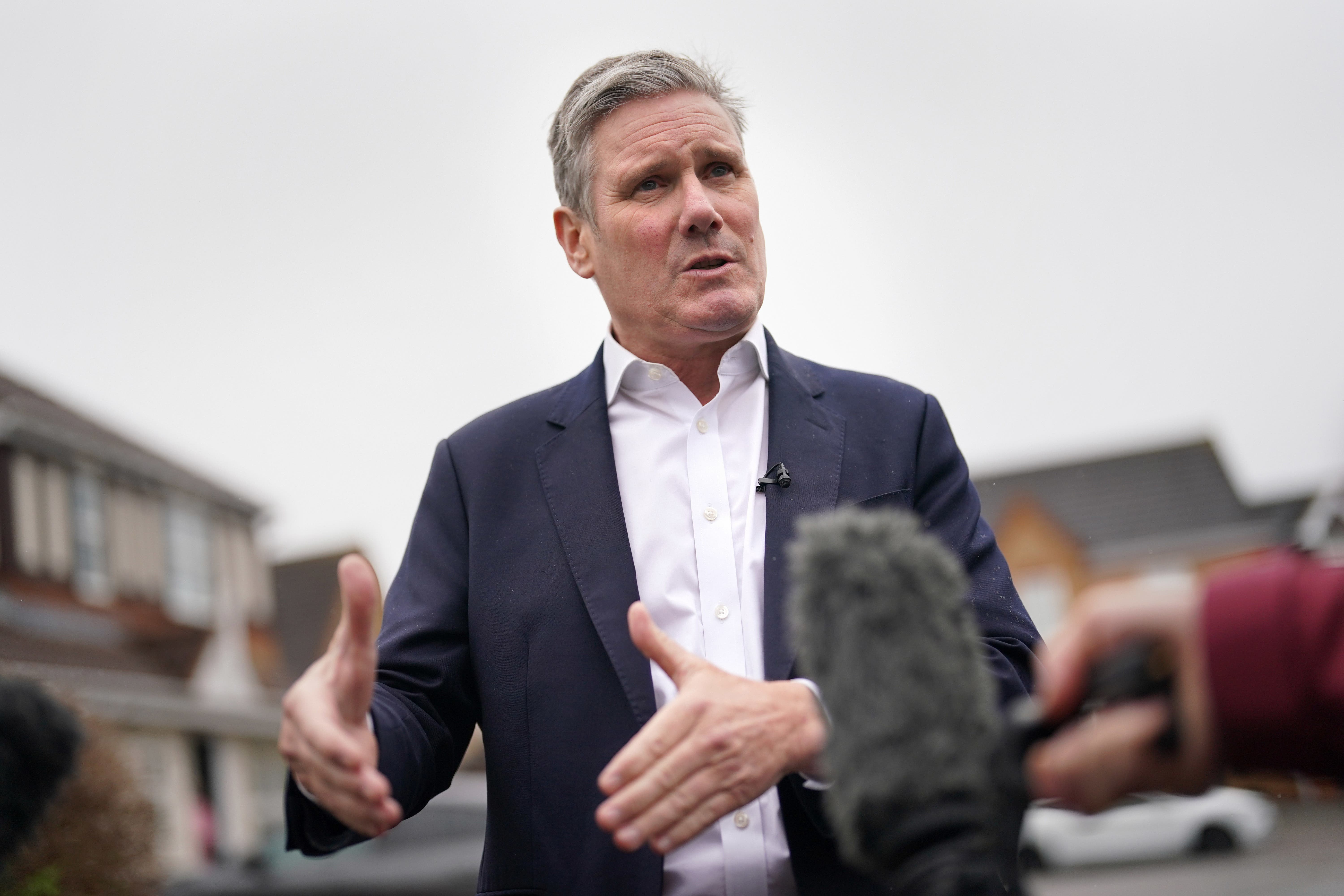What a Labour government will mean for pensions, tax and housebuilding
Keir Starmer is under pressure to set out a bolder vision for his party and the country – but he will only ditch his natural caution when he wins power, writes Andrew Grice


Speaking at the Edinburgh Fringe Festival, Nicola Sturgeon described Labour as a “pale imitation of the Conservatives“ and urged Keir Starmer to “find a backbone”. A predictable attack from an SNP in turmoil ahead of a crucial by-election in Rutherglen and Hamilton? True. Yet the funny thing is that many people inside Labour would privately agree with her.
Given Labour’s 20-point opinion poll lead, there’s a growing internal debate about whether the party should now be bolder to cement its likely election victory next year and outline more ambitious policies to provide the anchor for a Labour government. Some on the soft left – Starmer’s natural habitat, even though he has adopted Tony Blair’s playbook to win – fear his government would lack a guiding star and be rudderless.
Although his priority is to reassure voters, particularly about Labour’s economic credentials, Starmer should communicate better with the Labour faithful rather than take them for granted. A change of gear is being planned, in which Starmer would answer Sturgeon’s charge by highlighting Labour’s differences with the Tories, notably on the economy. Insiders say Starmer has told his team that while putting pressure on the Tories over the state Britain is in after five Tory prime ministers, he wants to use Labour’s October conference to “paint a bigger picture” and create momentum towards the election.
All incoming governments have things they intend to do but don’t want to advertise before an election. Five days after its 1997 landslide, New Labour ceded control of interest rates from ministers to the Bank of England. Starmer might struggle to find such a humdinger and his aides insist there is no “secret list” of post-election announcements. Yet it’s clear to me that things can only get (a little) better than they look now.
For example, Starmer got himself into a pickle last month when he ruled out reversing the Tories’ two-child cap on benefits. He didn’t intend to pick a fight with his party but, once it began, he couldn’t throw in the towel.
However, I’m told a Starmer government would mount an attack on child poverty through a powerful cross-departmental cabinet committee. When the leadership’s plans were explained behind closed doors to Labour’s national policy forum recently, they reassured even ardent anti-poverty campaigners. Although money would inevitably be tight, it would be a surprise if the two-child cap survived for long under a Starmer government.
To man-mark the Tories, Labour has pledged to keep the triple lock under which the state pension rises in line with average earnings, inflation or 2.5 per cent, whichever is higher. By 2025, pensions will cost £135bn a year – more than the combined budgets for education, defence and the Home Office.
Would the ballooning bill survive a five-year Labour government? I doubt it. Many MPs in all parties know it’s not the best use of scarce resources. The Tories will never bite this bullet given the age profile of their voters, but Labour might.
If the Treasury’s books are in even worse shape than Labour fears, Rachel Reeves’ first Budget could raise taxes on the very highest earners under the banner of clearing up the Tories’ mess and rescuing public services. One for the “not before election” box – because it might not happen.
A Starmer government would be more radical than it lets on about increasing housebuilding – the easiest way to boost growth. I suspect it wouldn’t just nibble at the green belt but would take a big bite. Local authority targets for new homes, dropped by the Sunak government to pander to the Nimbys, would rightly be back. It would be made cheaper for the state to compulsorily purchase land so the increase in value would benefit the public rather than the landowner.
There would be a big push to improve relations with the EU and co-operate closely with the bloc, without rejoining the single market and customs union. Brexiteers should not despair: this might just provide a real solution to the small boats crisis, which won’t be solved by the Tories’ increasingly shrill rhetoric.
Starmer is under pressure from some advisers to ensure some “quick wins” on popular policies for his new administration to show a clear sense of direction. But the state of the public finances – and self-imposed tough fiscal rules to reassure voters – mean some things would have to wait. For Labour ministers, MPs, members and supporters, patience will be a necessary virtue.
Voters, rightly sceptical after too many broken promises by politicians, will have to judge Labour on its manifesto rather than on nods and winks.
Starmer’s internal critics should acknowledge the party would in practice be bolder than it is currently saying; they should cut him some slack to aid the overriding goal of winning. Without that, all the intense debates about what Labour should do with power are redundant.






Join our commenting forum
Join thought-provoking conversations, follow other Independent readers and see their replies
Comments